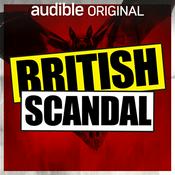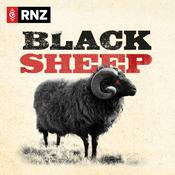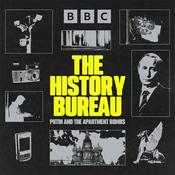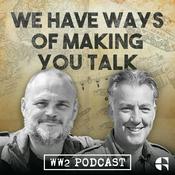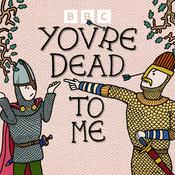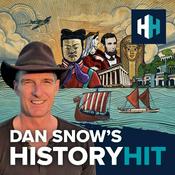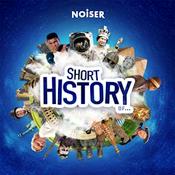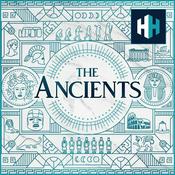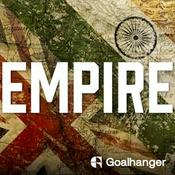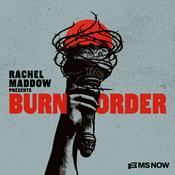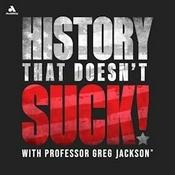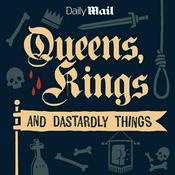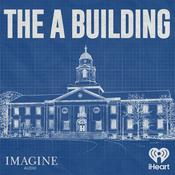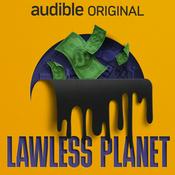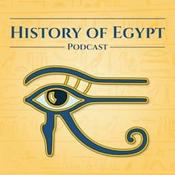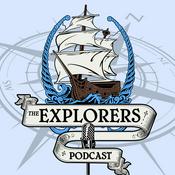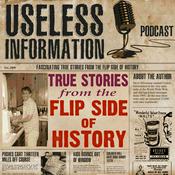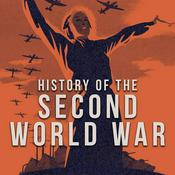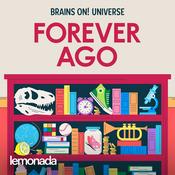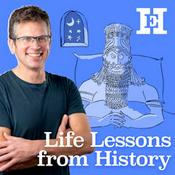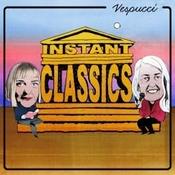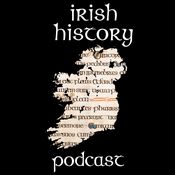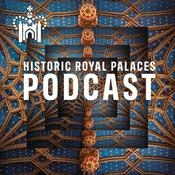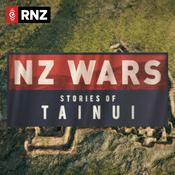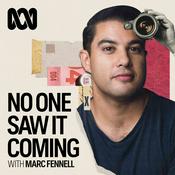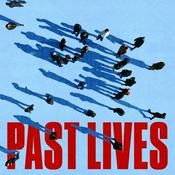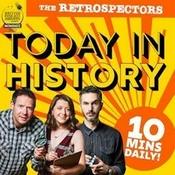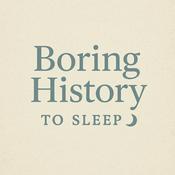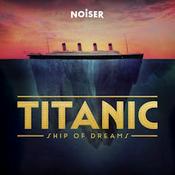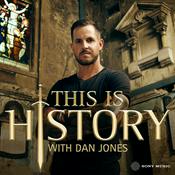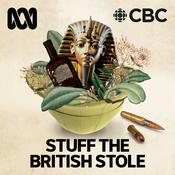55 episodes
- This week Prof. Ruairí Ó hUiginn (Dublin Institute for Advanced Studies) gives us a masterclass on the Ulster Cycle and all the elements and stories that are part of it, including its most famous tale, Táin Bó Cuailgne (the Cattle Raid of Cooley). Known for its dramatic and complicated protagonists Fergus mac Roich, Cú Chulainn and Queen Medb, Prof. Ó hUiginn explains how this literature is not a monolith and has been added to and expanded for many centuries. He describes how many of these stories may have originally been cautionary tales condemning warfare (and women!) and that they can be valuable sources for the medieval historian.
Suggested reading:
Ó hUiginn, Ruairí, Marriage, Law and Tochmarc Emire (Cambridge, 2013)
Toner, G., ‘The Ulster Cycle: Historiography or fiction?’, Cambrian Medieval Celtic Studies (2000), 1–20
Allen, N. J., 'Cú Chulainn's women and some Indo-European comparisons', Emania 18, 57–64
Regular episodes every two weeks (on a Friday)
Email: [email protected]
Producer: Tiago Veloso Silva
Supported by the Dept of Early Irish, Maynooth University & Taighde Éireann/Research Ireland.
Views expressed are the speakers' own.
Logo design: Matheus de Paula Costa
Music: Lexin_Music - In addition to our regular episode (on St Brigid abroad with Prof. Jean-Michel Picard) we have a little extra treat! Starring Prof. David Stifter performing some gorgeous early Irish poetry praising St Brigit. Interpolated with the English translations recited by Dr Niamh Wycherley. Big thanks to Tiago Veloso Silva for editing and co-writing the intro.
You can find our regular full length episode here: https://open.spotify.com/episode/0Bl4kPloLBBPIZyteEjsBY?si=epXhUJXlRomyBe-xAItDyw
Suggested reading:
'How Brigit continues to inspire poets, writers and artists' https://www.maynoothuniversity.ie/research/spotlight-research/how-brigit-continues-inspire-poets-writers-and-artists
The poetry has been edited and translated by Whitley Stokes and John Strachan (eds), Thesaurus palaeohibernicus, a collection of Old-Irish glosses, scholia, prose, and verse, ii (Cambridge, 1903), pp 325-349: https://archive.org/details/thesauruspalaeoh02stokuoft/page/324/mode/2up
Bethu Brigte edited and translated by Donncha Ó hAodha (Dublin Institute for Advanced Studies, 1978) https://celt.ucc.ie/published/T201002/
Regular episodes every two weeks (on a Friday)
Email: [email protected]
Producer: Tiago Veloso Silva
Supported by the Dept of Early Irish, Maynooth University & Taighde Éireann/Research Ireland.
Views expressed are the speakers' own.
Logo design: Matheus de Paula Costa
Music: Lexin_Music - Happy St Brigit's day! This year's celebration of Ireland's most beloved female icon comes a bit earlier to the podcast, but keep tuned as we have prepared a surprise for you to be published this weekend!
This week we are joined by the amazing linguist and historian Jean-Michel Picard, Professor Emeritus at University College Dublin, whose work has inspired generations of scholars studying medieval Ireland and Irish saints. In this episode, Prof. Picard tells us all about the transmission of the cult of St Brigit to the Continent, the various sources containing a wealth of information about the saint. Prof. Picard also shares the difficulties of tracking down manuscripts before the internet and offers us a glimpse of medieval Irish scholarship in Ireland in the 1980s.
Suggested Readings:
Connolly, Sean, and J.-M. Picard. 'Cogitosus’s ‘Life of St Brigit’ Content and Value', The Journal of the Royal Society of Antiquaries of Ireland , 117 (1987), pp 5-27. Freely available at http://www.jstor.org/stable/25508920.
Picard, J.M. Aquitaine and Ireland in the Middle Ages (Dublin, 1995).
Picard, J.-M. 'In platea monasterii: the layout of ecclesiastical settlements in early medieval Ireland (7th-9th C.)', in Flavia De Rubeis & Federico Marazzi (eds). Monasteri in Europa occidentale (secoli VIII-XI): topografia e strutture (Rome, 2008), pp.67-82.
Picard, J.-M. 'Omnes sancti chori Hiberniae sanctorum orate pro nobis: Manuscript Evidence for the Cult of Irish Saints in Medieval Europe', in Ann Buckley Music, Liturgy, and the Veneration of Saints of the Medieval Irish Church in a European Context (2017), pp. 67-77.
Regular episodes every two weeks (on a Friday)
Email: [email protected]
Producer: Tiago Veloso Silva
Supported by the Dept of Early Irish, Maynooth University & Taighde Éireann/Research Ireland.
Views expressed are the speakers' own.
Logo design: Matheus de Paula Costa
Music: Lexin_Music - On the podcast this week we explore Niamh's favourite primary source material: hagiography! We are joined by the multilingual Dr Sarah Waidler, of Glucksman Ireland House, NYU, expert in medieval Celtic languages including Irish and Welsh. Sarah guides us through these fascinating religious texts which were arguably the most popular literary genre in the 'European' Middle Ages and how Irish hagiography fits into this wider community. From warring saints to moving house miracles we learn what these texts can tell us about medieval people and society.
Suggested reading:
James Palmer, Early Medieval Hagiography (Amsterdam University Press, 2018).
S. Waidler (ed.), Defining the Boundaries of Hagiography in the Celtic World and Beyond: Textual Sources Outside Saints’ Lives and Martyrologies (Dublin Institute for Advanced Studies, forthcoming 2025)
S. Waidler, ‘Sanctity and Intertextuality in Medieval Munster: The Unusual Life of Findchú of Brí Gobann’, Peritia 30 (2019), pp. 215–34
Regular episodes every two weeks (on a Friday)
Email: [email protected]
Producer: Tiago Veloso Silva
Supported by the Dept of Early Irish, Maynooth University & Taighde Éireann/Research Ireland.
Views expressed are the speakers' own.
Logo design: Matheus de Paula Costa
Music: Lexin_Music - ** We are taking a week off and will be back January 16th!** Happy Stephen’s Day and Happy New Year! I hope everyone is having a very lovely Christmas break. This week we are joined by the incredible Dr Sparky Booker, Assistant Professor in Medieval Irish History, Trinity College Dublin. Sparky enlightens us on the legal systems in force in 14th and 15th century Ireland, how to keep your land and why Elizabeth Le Veele married King of Leinster, Art McMurrough. She also discusses how the prevalence of intermarriage in the so-called 'four obedient shires' indicates that the English and Irish interacted far more peaceably and amicably than the often belligerent attitudes displayed toward the Irish in records from the colony would indicate, and that the attempts made by the Irish parliament to distance the English of Ireland from their Irish neighbours were largely unsuccessful.
Suggested reading:
Sparky Booker, Cultural Exchange and Identity in late medieval Ireland: the English and Irish of the Four Obedient Shires, Studies in Medieval Life and Thought Series (Cambridge, 2018)
Sparky Booker, ‘Women and legal history: the case of late medieval English Ireland and the challenges of studying ‘women’’, Irish Historical Studies, 46:170 (2022), pp 224-243
Sparky Booker, ‘Intermarriage in fifteenth-century Ireland: the English and Irish in the ‘four obedient shires’, Proceedings of the Royal Irish Academy, 113c (2013), pp 219-250
Sparky Booker, ‘Widowhood and attainder in medieval Ireland: the case of Margaret Nugent’ in Deborah Youngs and Teresa Phipps (eds), Litigating women: gender and justice in Europe, c.1300-c.1800 (Abingdon, 2022), pp 81-98
Ellis, Stephen G. (1998). Ireland in the Age of the Tudors, 1447-1603: English Expansion and the End of Gaelic Rule (2nd ed.). Routledge
Regular episodes every two weeks (on a Friday)
Email: [email protected]
Producer: Tiago Veloso Silva
Supported by the Dept of Early Irish, Maynooth University & Taighde Éireann/Research Ireland.
Views expressed are the speakers' own.
Logo design: Matheus de Paula Costa
Music: Lexin_Music
More History podcasts
Trending History podcasts
About The Medieval Irish History Podcast
Hosted by Dr Niamh Wycherley, this podcast shows that medieval Irish history is complex and dynamic — not at all stuffy or static. Via lively and engaging chats with leading experts, it explores aspects of a largely ignored, but commonly evoked, period, and shares new and exciting research on medieval Ireland.
[email protected]
Supported by the Dept of Early Irish, Maynooth University & Taighde Éireann.
Views expressed are speakers' own.
Production: Tiago de Oliveira Veloso Silva.
Logo design: Matheus de Paula Costa
Music: Lexin_Music
Podcast websiteListen to The Medieval Irish History Podcast, British Scandal and many other podcasts from around the world with the radio.net app
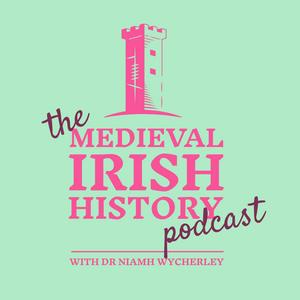
Get the free radio.net app
- Stations and podcasts to bookmark
- Stream via Wi-Fi or Bluetooth
- Supports Carplay & Android Auto
- Many other app features
Get the free radio.net app
- Stations and podcasts to bookmark
- Stream via Wi-Fi or Bluetooth
- Supports Carplay & Android Auto
- Many other app features


The Medieval Irish History Podcast
Scan code,
download the app,
start listening.
download the app,
start listening.


